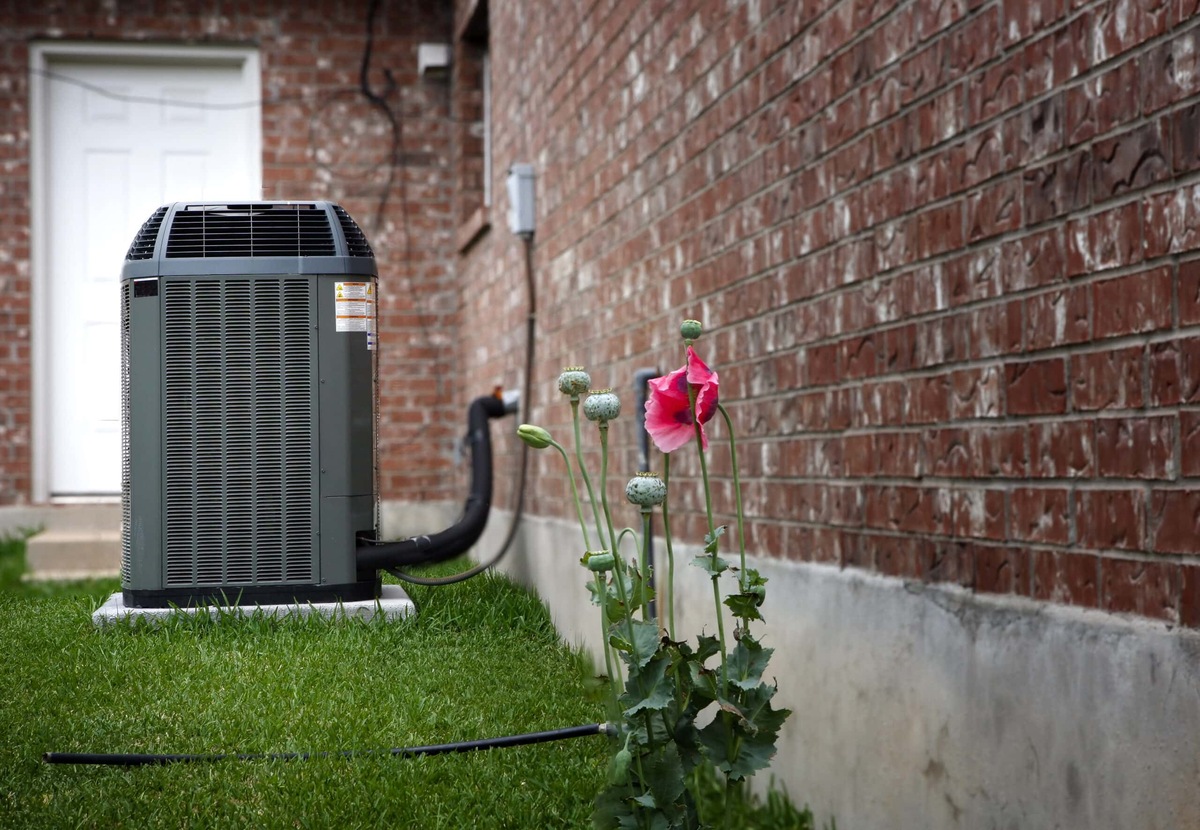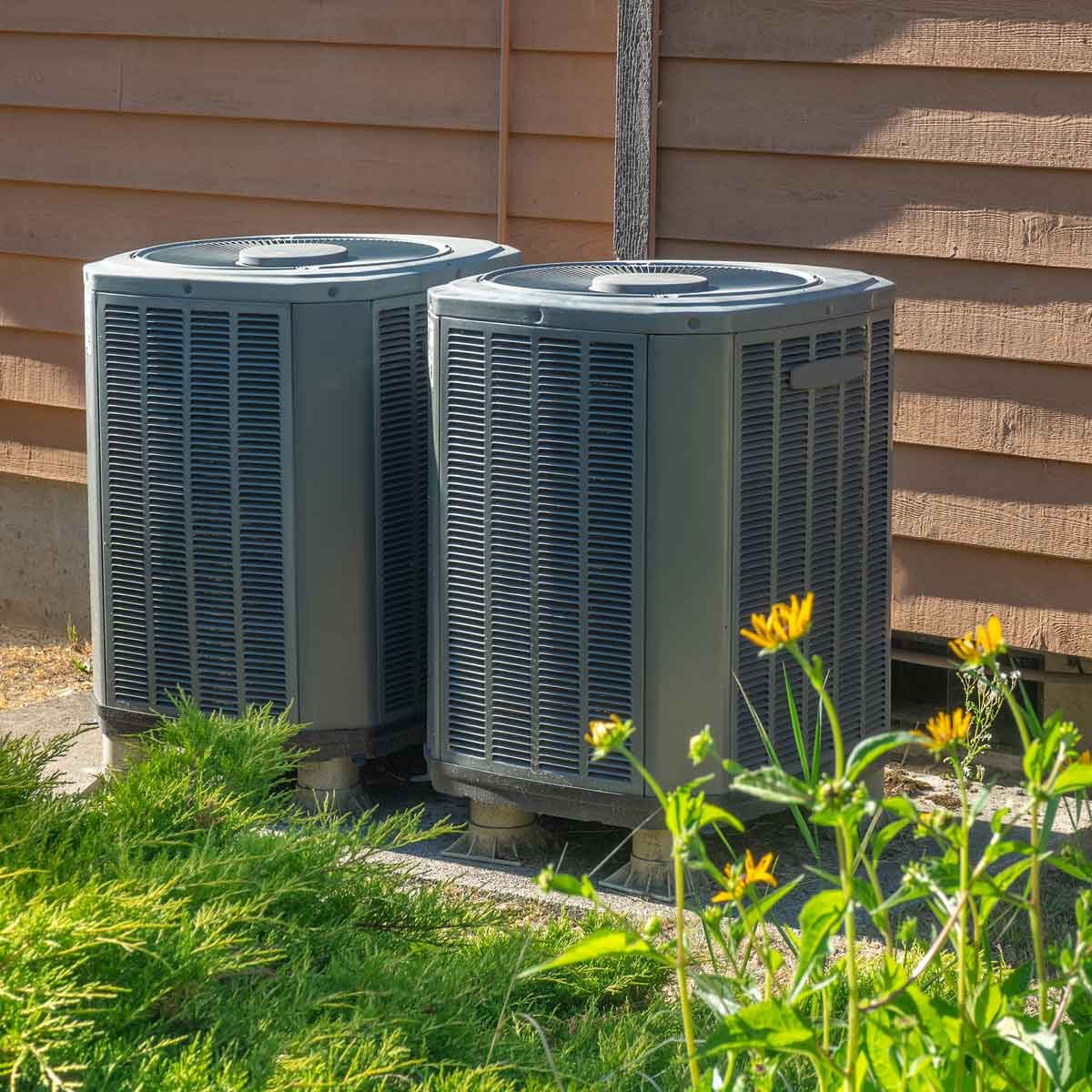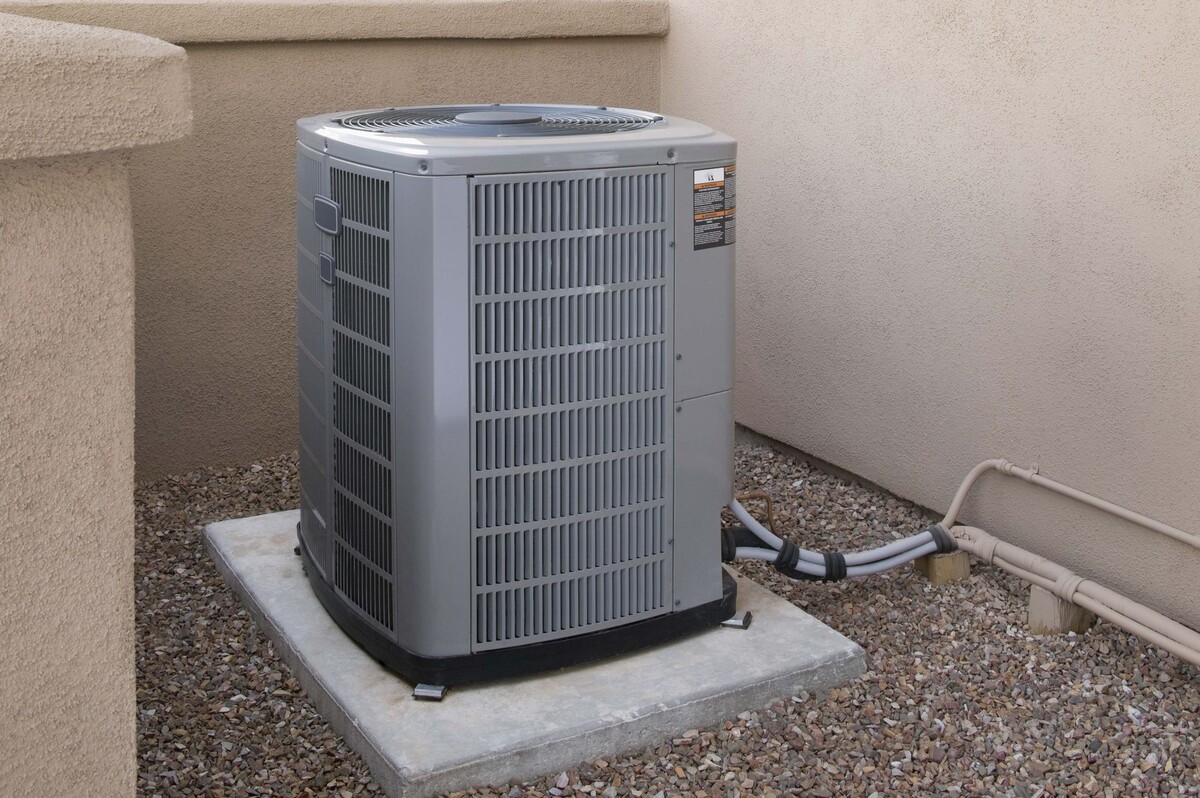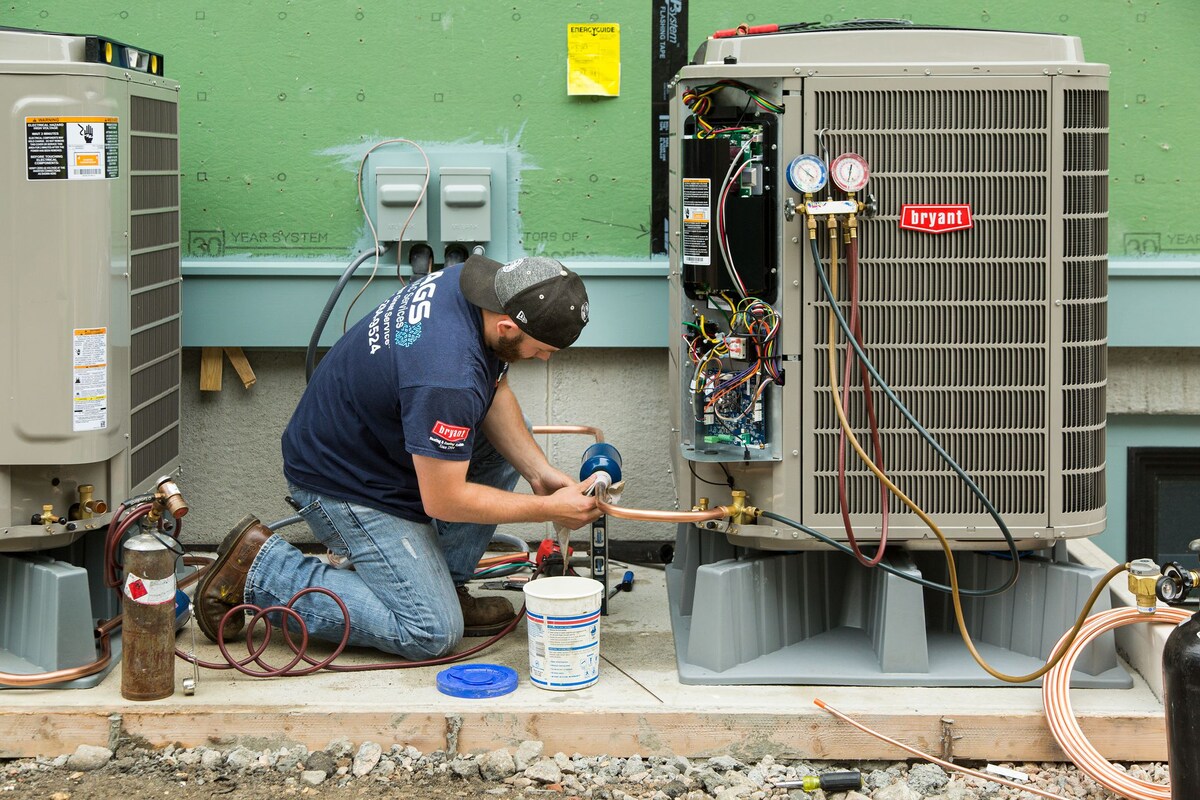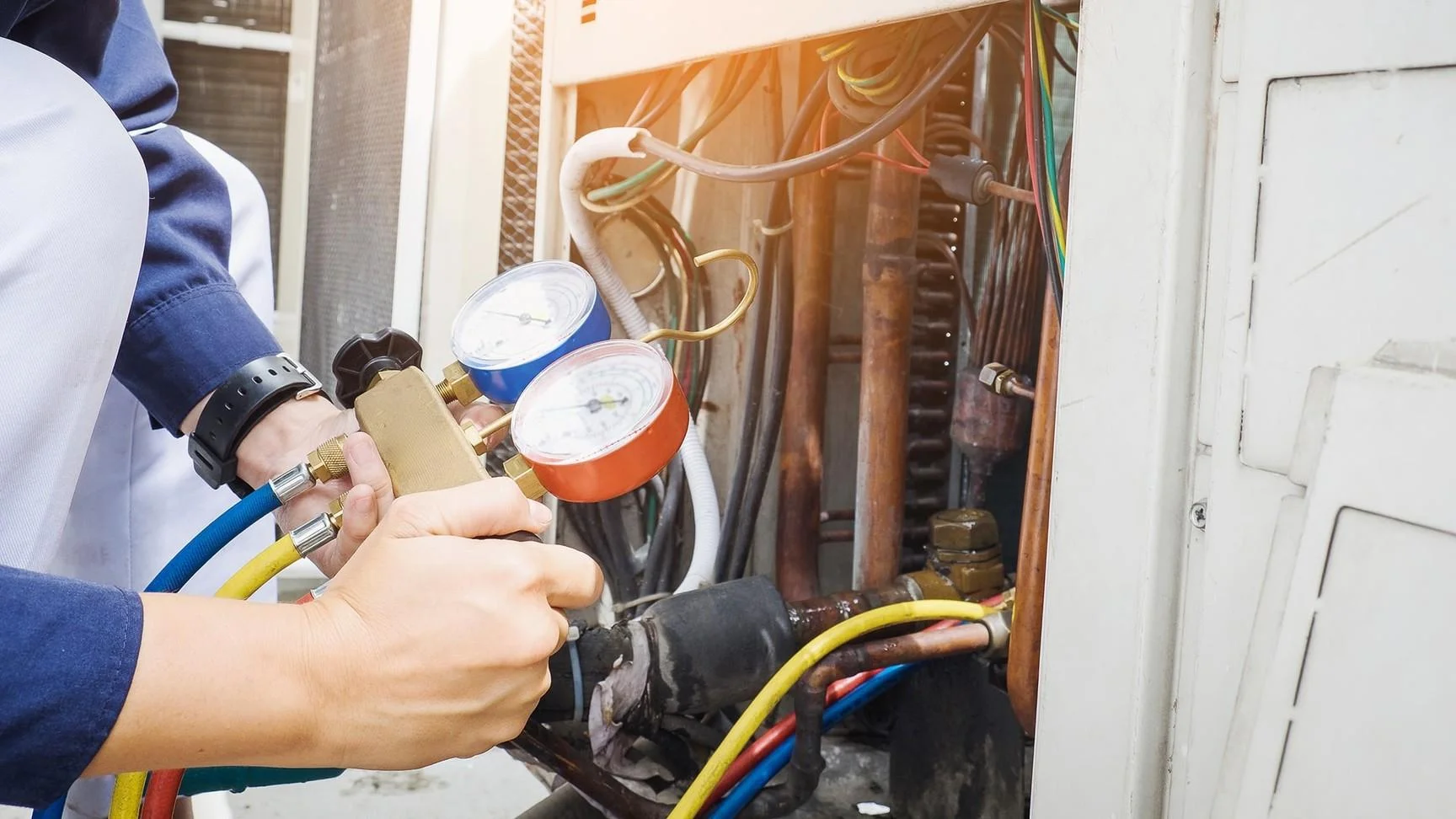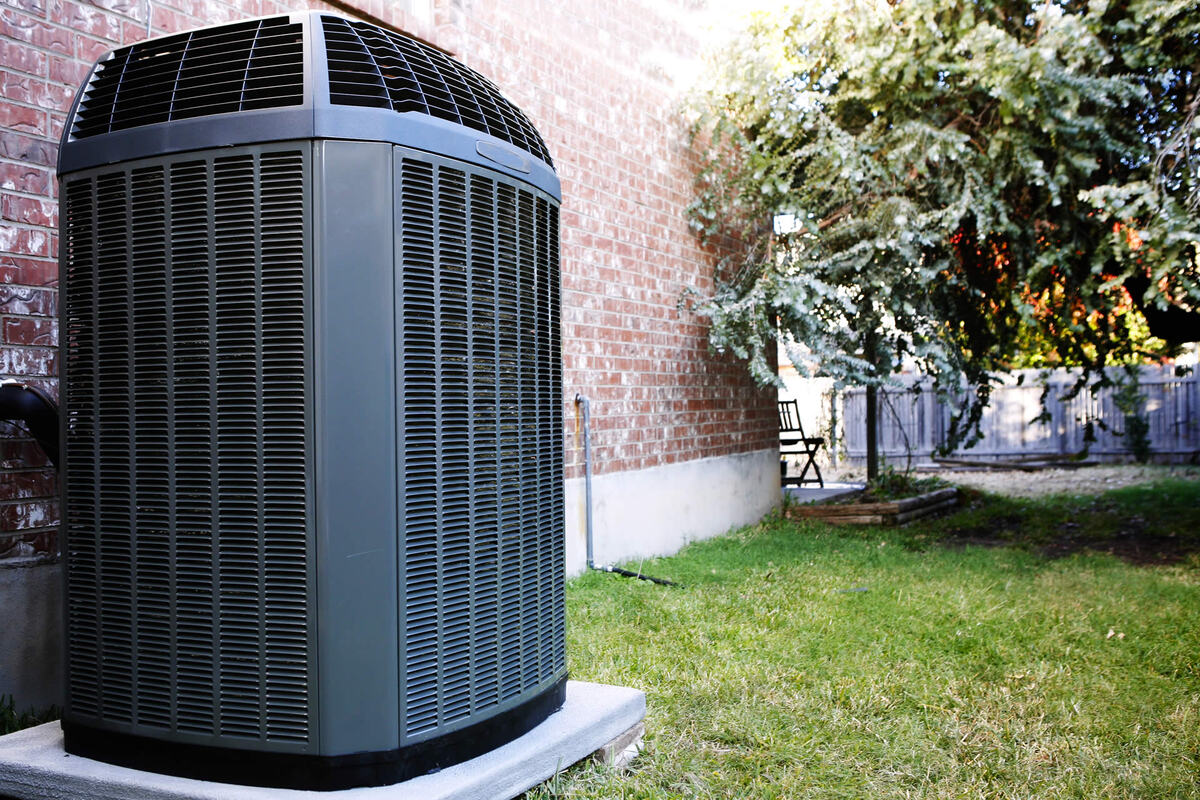Home>Home Maintenance>How To Choose A Central Air Conditioner
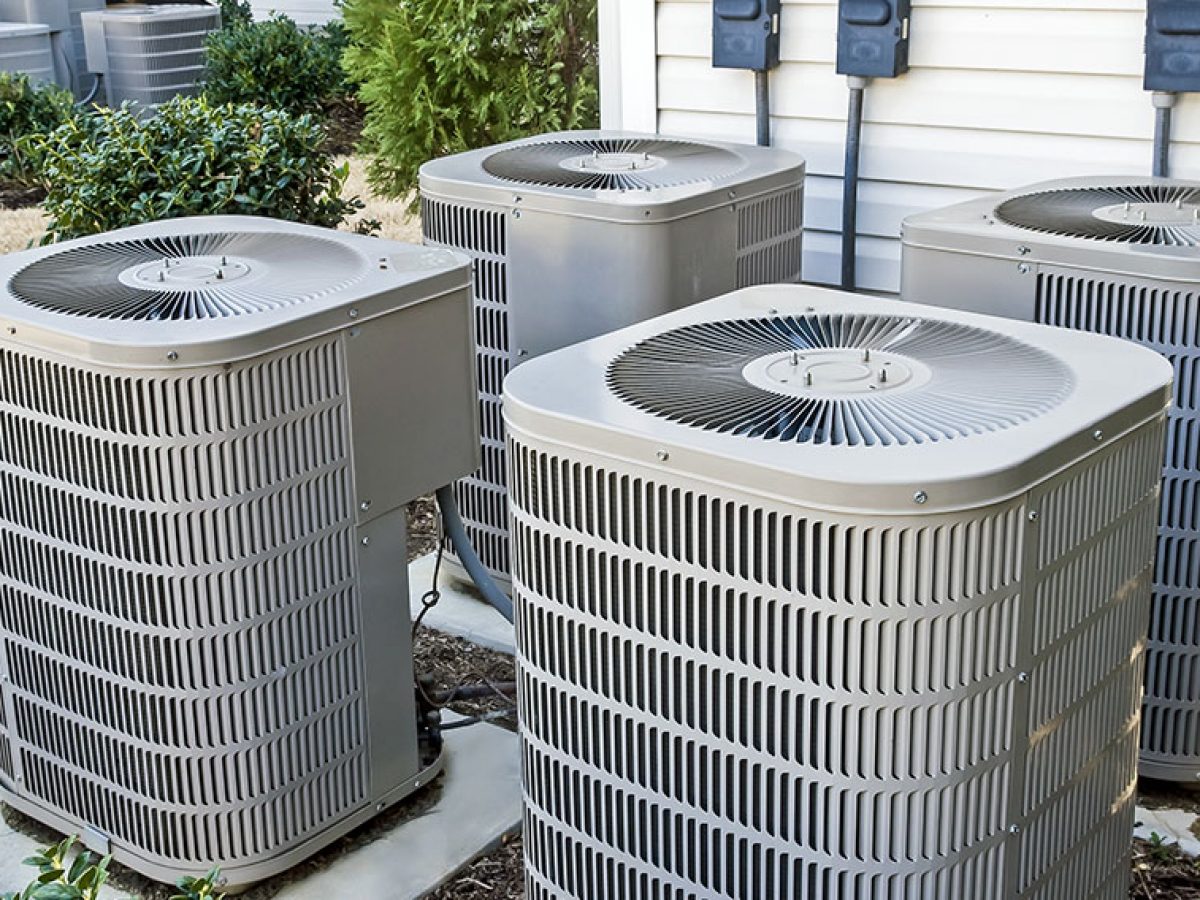

Home Maintenance
How To Choose A Central Air Conditioner
Modified: March 7, 2024
Learn how to choose a central air conditioner for your home maintenance needs. Find the best options, tips, and expert advice to keep your home cool and comfortable.
(Many of the links in this article redirect to a specific reviewed product. Your purchase of these products through affiliate links helps to generate commission for Storables.com, at no extra cost. Learn more)
Introduction
Welcome to our guide on how to choose a central air conditioner for your home. As the temperature rises and summer approaches, having a reliable and efficient cooling system becomes crucial for maintaining a comfortable indoor environment.
Choosing the right central air conditioner can be a daunting task, considering the numerous options available in the market today. Factors such as proper sizing, energy efficiency, types of systems, and finding a reputable contractor all play a crucial role in making the right decision.
In this article, we will guide you through the process of selecting a central air conditioner that suits your specific needs. By understanding these factors and following our recommendations, you can ensure optimal cooling performance and energy efficiency for your home.
So, let’s dive in and explore the key factors you should consider when choosing a central air conditioner.
Key Takeaways:
- Choose the right central air conditioner by considering cooling capacity, energy efficiency, and system type. Work with a reputable contractor and prioritize regular maintenance for optimal performance and comfort.
- Proper sizing, energy efficiency, and system type are crucial when choosing a central air conditioner. Regular maintenance and a reliable contractor ensure long-term cooling comfort and energy savings.
Read more: How To Choose An Air Conditioner
Factors to Consider When Choosing a Central Air Conditioner
When it comes to selecting a central air conditioner for your home, there are several important factors to consider. These factors will help you make an informed decision and ensure that the system you choose is the right fit for your home and cooling needs. Let’s take a closer look at these factors:
1. Cooling Capacity:
One of the key factors to consider is the cooling capacity of the central air conditioner. This is typically measured in British Thermal Units (BTUs) and refers to the amount of cooling power the system can provide. It is essential to choose a system with the right cooling capacity for your home. An undersized unit will struggle to cool your home effectively, while an oversized unit will cycle on and off frequently, leading to inefficient operation and increased energy consumption.
2. Energy Efficiency:
The energy efficiency of a central air conditioner is another crucial factor to consider. Look for systems with high Seasonal Energy Efficiency Ratio (SEER) ratings. Higher SEER ratings indicate that the unit can provide more cooling output for each unit of energy consumed, leading to lower energy bills and reduced environmental impact.
3. Ductwork and Compatibility:
Consider the condition of your existing ductwork and compatibility with the central air conditioner system. If your ductwork is old or in poor condition, it may be worthwhile to invest in duct replacement or repair. Additionally, ensure that the system you choose is compatible with your existing ductwork layout.
Read more: How To Clean A Central Air Conditioner
4. Noise Level:
Central air conditioners can produce varying levels of noise during operation. If noise is a concern, especially if the unit is installed near living spaces or bedrooms, opt for systems with lower noise ratings. Look for units with advanced noise reduction technology and features such as insulated cabinets and variable-speed compressors.
5. Warranty and Support:
Consider the warranty and after-sales support offered by the manufacturer. Look for systems that come with comprehensive warranties to protect your investment. Additionally, ensure that the manufacturer or dealer provides reliable customer support and service.
6. Budget Considerations:
While price should not be the sole determining factor, it is essential to consider your budget when choosing a central air conditioner. Compare the upfront costs, operating costs, and potential energy savings to find a system that offers the best value for your investment.
By carefully evaluating these factors, you can choose a central air conditioner that provides optimal cooling performance, energy efficiency, and comfort for your home. Next, let’s explore the importance of proper sizing when selecting a central air conditioner.
Proper Sizing of the Central Air Conditioner
Proper sizing is a crucial aspect when choosing a central air conditioner for your home. An improperly sized unit can lead to inefficient cooling, decreased comfort, and higher energy bills. Here’s why sizing matters:
Read more: How To Size A Central Air Conditioner
1. Under-Sized Units:
If you choose a central air conditioner that is too small for your home, it will struggle to cool the space adequately. The unit will run continuously, trying to reach the desired temperature, but never achieving it. This constant operation puts excessive strain on the system and can lead to frequent breakdowns, increased energy consumption, and early system failure.
2. Over-Sized Units:
An over-sized central air conditioner is just as problematic as an under-sized one. When a unit is too large for your home, it will cool the space quickly and shut off. While this may initially seem efficient, it leads to short cycling. Short cycling occurs when the air conditioner turns on and off frequently, not allowing enough time for proper dehumidification. This can result in uncomfortable humidity levels and uneven cooling throughout your home.
3. Importance of Load Calculation:
To determine the correct size for your central air conditioner, it is crucial to perform a load calculation. A load calculation takes into account various factors such as the size of the space, insulation levels, window orientation, number of occupants, and more. This calculation provides an accurate estimate of the cooling requirements for your home.
4. Professional HVAC Assessment:
It is recommended to consult with a professional HVAC contractor who can perform a load calculation. They have the expertise and specialized software to accurately assess the cooling needs for your specific home. A professional assessment ensures that the central air conditioner is properly sized to deliver optimal performance, energy efficiency, and comfort.
Remember, the goal is to choose a central air conditioner that is just the right size for your home. This ensures that it operates efficiently, provides consistent cooling, and maintains comfortable humidity levels. Oversized or undersized units can lead to unnecessary energy waste, increased costs, and decreased comfort.
Next, let’s explore the importance of energy efficiency ratings and SEER when selecting a central air conditioner.
Read more: How To Install Central Air Conditioner
Energy Efficiency Ratings and SEER
When choosing a central air conditioner, considering its energy efficiency is essential. Energy-efficient systems not only help to reduce your environmental impact but also result in lower energy bills. One of the key indicators of energy efficiency for air conditioners is the Seasonal Energy Efficiency Ratio (SEER). Here’s why SEER ratings matter:
1. What is SEER?
SEER is a measurement that represents the cooling output of an air conditioner divided by the energy consumed over a typical cooling season. The higher the SEER rating, the more efficient the system is. In general, air conditioners with higher SEER ratings provide better energy efficiency and lower operating costs.
2. Importance of High SEER Ratings:
Investing in an air conditioning system with a high SEER rating can have several benefits:
- Energy Savings: Air conditioners with high SEER ratings consume less energy to produce the same amount of cooling output. This leads to substantial energy savings, resulting in lower utility bills.
- Environmental Impact: High-efficiency air conditioners help reduce greenhouse gas emissions by consuming less energy. By lowering your carbon footprint, you contribute to a more sustainable future.
- Comfort: Air conditioners with higher SEER ratings often come equipped with advanced features such as variable-speed motors or multi-stage compressors. These features allow for more precise temperature control, improved humidity control, and overall enhanced comfort.
3. Consideration of Climate:
When choosing a central air conditioner, it is important to consider your climate. Regions with warmer climates may require higher SEER ratings to ensure efficient cooling. In contrast, regions with milder climates may have more flexibility in choosing lower SEER-rated systems.
Read more: How Does A Central Air Conditioner Work?
4. Cost Considerations:
While high SEER-rated air conditioners offer long-term energy savings, they often come with a higher upfront cost compared to lower-rated models. However, it is crucial to consider the return on investment over the system’s lifespan. Lower operating costs and potential utility rebates may offset the initial investment.
When selecting a central air conditioner, it is wise to strike a balance between energy efficiency and budget constraints. Consider the climate in your area, your cooling requirements, and the potential long-term savings when determining the appropriate SEER rating for your needs.
Now that you understand the significance of energy efficiency and SEER ratings, let’s explore the different types of central air conditioner systems available.
Types of Central Air Conditioner Systems
When it comes to central air conditioning systems, there are a few different options available. Each type has its own advantages and considerations. Let’s explore the various types of central air conditioner systems:
1. Split System:
The split system is the most common type of central air conditioner. It consists of two main components: an outdoor unit (condenser) and an indoor unit (evaporator coil). The outdoor unit contains the compressor, condenser coil, and fan, while the indoor unit houses the evaporator coil and air handler. Split systems offer efficient cooling performance and can be combined with a furnace for both heating and cooling.
2. Heat Pump:
A heat pump works similarly to a split system but has the added capability of providing both heating and cooling. It functions by transferring heat between the indoor and outdoor units. In the summer, the heat pump extracts heat from the indoor air and releases it outdoors, providing cool air inside. During colder months, the process is reversed, and the heat pump extracts heat from the outdoor air and transfers it indoors for heating. Heat pumps are known for their energy efficiency and versatility.
Read more: How Much Is A New Central Air Conditioner
3. Packaged System:
A packaged system consists of all the components in a single unit, typically installed outdoors. The system includes the compressor, condenser coil, evaporator coil, and air handler all in one unit. Packaged systems are commonly used in homes with limited indoor space or in commercial buildings. They can be either air-cooled or water-cooled, depending on the specific requirements and availability of resources.
4. Ductless Mini-Split:
A ductless mini-split system does not require ductwork and is an excellent option for homes without existing ducts or for room additions. It consists of an outdoor unit connected to one or more indoor air handling units by refrigerant lines. Each indoor unit can be controlled independently, allowing for personalized comfort. Ductless mini-split systems are highly energy-efficient and provide zoned cooling, allowing you to cool specific areas of your home.
5. Geothermal System:
A geothermal system utilizes the energy stored in the ground to provide both heating and cooling. It works by circulating water or refrigerant through pipes buried underground, where the temperature remains relatively constant. Geothermal systems are highly efficient, eco-friendly, and can provide substantial energy savings over time. However, they require substantial upfront investment for installation.
When selecting a central air conditioner system, consider the specific needs of your home, budget, and preferences. Consulting with an HVAC professional can help you determine the most suitable system for your requirements.
Now that we have explored the different types of central air conditioner systems, let’s delve into the importance of choosing the right air conditioning contractor.
Choosing the Right Air Conditioning Contractor
When it comes to installing or servicing your central air conditioner, choosing the right air conditioning contractor is crucial. The contractor you select will have a significant impact on the installation quality, system performance, and long-term reliability. Here are some important considerations when choosing an air conditioning contractor:
1. Experience and Expertise:
Look for contractors with a proven track record of experience in installing and servicing central air conditioning systems. Experienced contractors will have in-depth knowledge of different brands and models, as well as the skills to handle various installation challenges. They can guide you in selecting the right system for your needs and ensure a professional installation.
2. Licensing and Certification:
Ensure that the contractor you choose is licensed and certified to work on HVAC systems. Proper licensing indicates that they have met the necessary requirements and adhere to industry standards and regulations. Certification from recognized organizations such as NATE (North American Technician Excellence) further demonstrates their expertise and commitment to professionalism.
3. Reputation and References:
Check the contractor’s reputation in the industry and within the local community. Look for customer reviews, testimonials, or ask for references from past clients. A reputable contractor will have positive feedback and a history of delivering satisfactory results.
4. Comprehensive Services:
Consider contractors who offer a wide range of services, including installation, maintenance, repair, and emergency services. Having a one-stop-shop for your air conditioning needs can save you time and hassle in the long run. It also ensures that you have a trusted partner to rely on for any future maintenance or repair needs.
5. Pricing and Estimates:
Obtain detailed estimates from multiple contractors. Compare the costs, including the price of the system, installation charges, and any additional services. However, remember that the lowest price does not always guarantee the best quality. Opt for a contractor who offers fair and transparent pricing along with high-quality workmanship.
6. Warranty and After-Sales Support:
Check the warranty offered by the contractor on their work and the equipment they install. A reputable contractor will provide warranties on their installation and offer ongoing support to address any concerns or maintenance needs. This ensures that you are covered in case of any issues that may arise after the installation.
By carefully considering these factors, you can choose an air conditioning contractor who will provide reliable and professional services. Remember, a qualified and reputable contractor will help ensure the proper installation and performance of your central air conditioner.
Next, let’s explore the importance of maintenance and service in keeping your central air conditioner running smoothly.
Maintenance and Service
Maintaining your central air conditioner is essential for its longevity, performance, and energy efficiency. Regular maintenance and timely servicing can help prevent breakdowns, improve indoor air quality, and extend the lifespan of your system. Here’s why maintenance and service are crucial:
1. Regular Inspections and Tune-ups:
Schedule annual inspections and tune-ups with a qualified HVAC professional. During these visits, the technician will perform a thorough inspection of your system, clean the components, lubricate moving parts, check refrigerant levels, and identify any potential issues. Regular tune-ups ensure that your system is operating at peak efficiency, reducing energy consumption, and minimizing the risk of costly repairs.
Read more: How To Add Central Air To Forced Air Heating
2. Air Filter Replacement:
Regularly replacing the air filters in your central air conditioner is crucial for maintaining proper airflow and maximizing performance. Clogged or dirty filters can restrict airflow, reducing efficiency and potentially causing strain on the system. Replace the filters as recommended by the manufacturer or more frequently if you have pets or allergies.
3. Cleaning the Condenser Coils:
Over time, dirt, dust, and debris can accumulate on the condenser coils, hindering heat transfer and reducing efficiency. Regularly cleaning the coils helps maintain optimal performance. Use a soft brush or gentle stream of water to remove any debris, or hire a professional for a thorough cleaning.
4. Clearing the Surrounding Area:
Ensure that the outdoor unit of your central air conditioner is clear of any vegetation, debris, or obstructions. A clear surrounding area allows for proper airflow and prevents the system from overheating. Trim any plants or shrubs around the unit and keep it clean and free from any blockages.
5. Monitoring Energy Consumption:
Keep an eye on your energy bills and monitor any significant changes in consumption. A sudden or gradual increase in energy usage may indicate a problem with your central air conditioner. Promptly address any issues by scheduling a service visit to prevent further damage and higher energy expenses.
6. Seasonal Shutdown and Start-up:
Before the cooling season begins, have your central air conditioner inspected to ensure it’s ready for operation. Just as important, schedule a professional shutdown and winterization at the end of the season to protect your system during the colder months.
Regular maintenance and service for your central air conditioner not only optimize performance and energy efficiency but also enhance indoor air quality and extend the lifespan of the system. By investing in proper maintenance, you can enjoy reliable cooling comfort and lower energy bills for years to come.
Now that we have explored the importance of maintenance and service, let’s conclude our guide on choosing a central air conditioner.
Conclusion
Choosing the right central air conditioner for your home requires careful consideration of various factors. By taking into account these factors, you can ensure optimal cooling performance, energy efficiency, and overall comfort. Here’s a recap of the key points we discussed:
– Consider the cooling capacity and energy efficiency ratings, such as the SEER, to find the right-sized system that offers efficient cooling and energy savings.
– Evaluate the different types of central air conditioner systems, such as split systems, heat pumps, packaged systems, ductless mini-splits, and geothermal systems, to determine the one that suits your needs and preferences.
– Choose a reputable and experienced air conditioning contractor who can provide quality installation, maintenance, and service for your central air conditioner.
– Regular maintenance and servicing, including inspections, tune-ups, air filter replacement, cleaning, and clearing the surrounding area, are crucial to ensure optimal performance, energy efficiency, and system longevity.
By following these guidelines and working with trusted professionals, you can make an informed decision when choosing a central air conditioner and ensure its smooth operation for years to come.
Remember, a comfortable indoor environment is essential for your well-being, and an efficient central air conditioner can make a significant difference in your home’s comfort, energy efficiency, and overall enjoyment.
So, take the time to research, consult with experts, and select the best central air conditioner that meets your specific needs. Enjoy the cool comfort and peace of mind knowing that you have made a wise investment in your home’s climate control.
Frequently Asked Questions about How To Choose A Central Air Conditioner
Was this page helpful?
At Storables.com, we guarantee accurate and reliable information. Our content, validated by Expert Board Contributors, is crafted following stringent Editorial Policies. We're committed to providing you with well-researched, expert-backed insights for all your informational needs.
